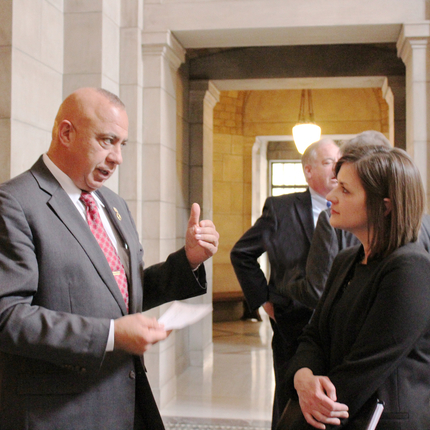Cody Smith contributed to this blog.
In 2015, a working group gathered to talk about the challenges Nebraska food consumers and producers alike face, and how to best address them.
In 2019, Nebraska Legislative Bill (LB) 304 was passed, expanding the state’s food laws to facilitate growth among cottage food entrepreneurs, or those who bake and prepare certain foods in their home kitchens and sell them on a small scale.
What do these two events have in common? The Nebraska Food Council, a statewide food policy council led by the Center for Rural Affairs, which gathers input from a wide variety of stakeholders from different parts of the food system to improve state policy. In a working session late last year, members of the newly-formed council had identified priorities and issues already in the legislature where they could lend their voice and support.
Expanding cottage foods was a large part of those conversations. The legislation, now law, expanded Nebraska’s cottage food rules to allow producers to sell beyond just farmers markets, which was a restriction under previous state code. The bill also allows food-based businesses more opportunities for direct sales. Here are some noteworthy changes to the current law:
- The law exempts a private home or other area where food is produced and served from being regulated as a “food establishment” in Nebraska law if:
- There are no more than 10 paying guests eating meals in the home;
- The food being prepared does not require time/temperature control for food safety.
- LB 304 also expanded the point of sale for many of these cottage food products by allowing for purchase at:
- Fairs, festivals, craft shows, other public events, or for pick up at, or delivery from such private home or other area.
- However, cottage food sellers must do the following, among other things:
- Provide visible notification at the site of sale or on the product if it may contain allergens, if it was prepared in a kitchen not subject to regulations, and the name and address of the producer of the food item.
- To comply with these regulations, transactions must be done person-to-person or through a commercial mailing organization, such as the U.S. Postal Service.
- The producer must complete a nationally accredited food safety and handling course (unless selling at a farmers market), as well as hold any locally-required permits.
- If using private well water, the producer must have it tested for contamination from bacteria or nitrates prior to selling or producing cottage food products.
Nebraska Food Council members wanted to lend support and turned to Center staff for assistance in how best to connect with the effort. Our staff quickly leaped into action to help members craft and provide testimony both in person and in writing, and to prepare letters to the editor. Some producers even provided cottage foods to lawmakers, engaging with this effort and creating more opportunities for both Nebraska entrepreneurs and consumers.
Here are a few things legislators heard from engaged citizens who supported the passage of this bill:
“For a state that prides itself on being a breadbasket of the world, it’s unbelievable—as well as risky—that we overwhelmingly rely on outsiders for our food. Seventy years ago, we largely fed ourselves. We need to get back to supplying some of our local diet.” -Ron Todd-Meyer, Lincoln, Nebraska
“Small businesses can grow to be real players in the market.” -Chad Nabity, Grand Island, Nebraska
“As consumer interest in local food continues to grow, it would be wise for the state of Nebraska to catch up with other states that have eased cottage food restrictions, thereby providing opportunities for largely rural, largely women-owned, home-based food businesses to contribute to the economy.” -Katie Jantzen, Plymouth, Nebraska
What do food policy councils do?
- Promote new approaches to food problems and policies.
- Cultivate partnerships among all food system participants.
- Support programs and services that help build a more local, just, and sustainable food system.
Pictured: Sen. Tom Brewer, representing District 43 in the Nebraska Legislature, chats with Jordan Rasmussen, Center for Rural Affairs policy manager, at the capitol building. | Photo by Rhea Landholm





